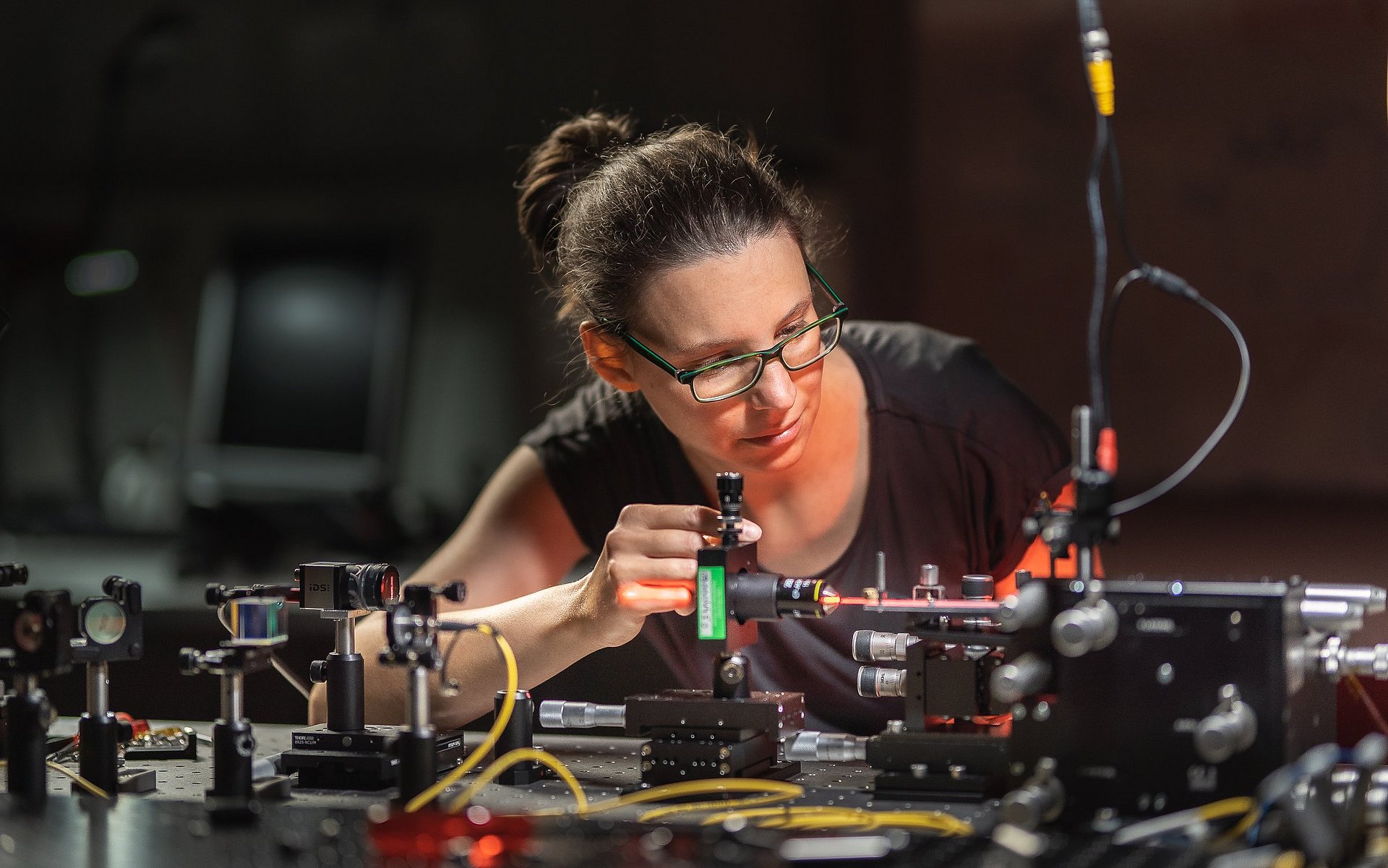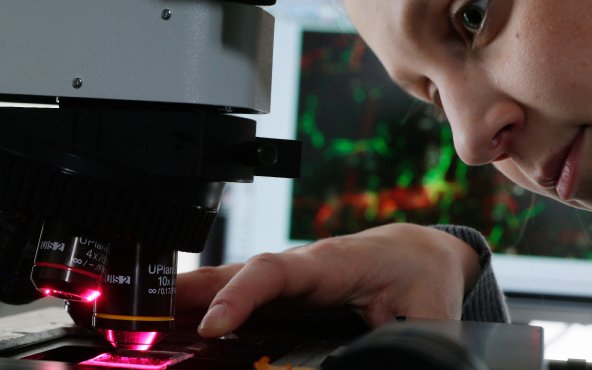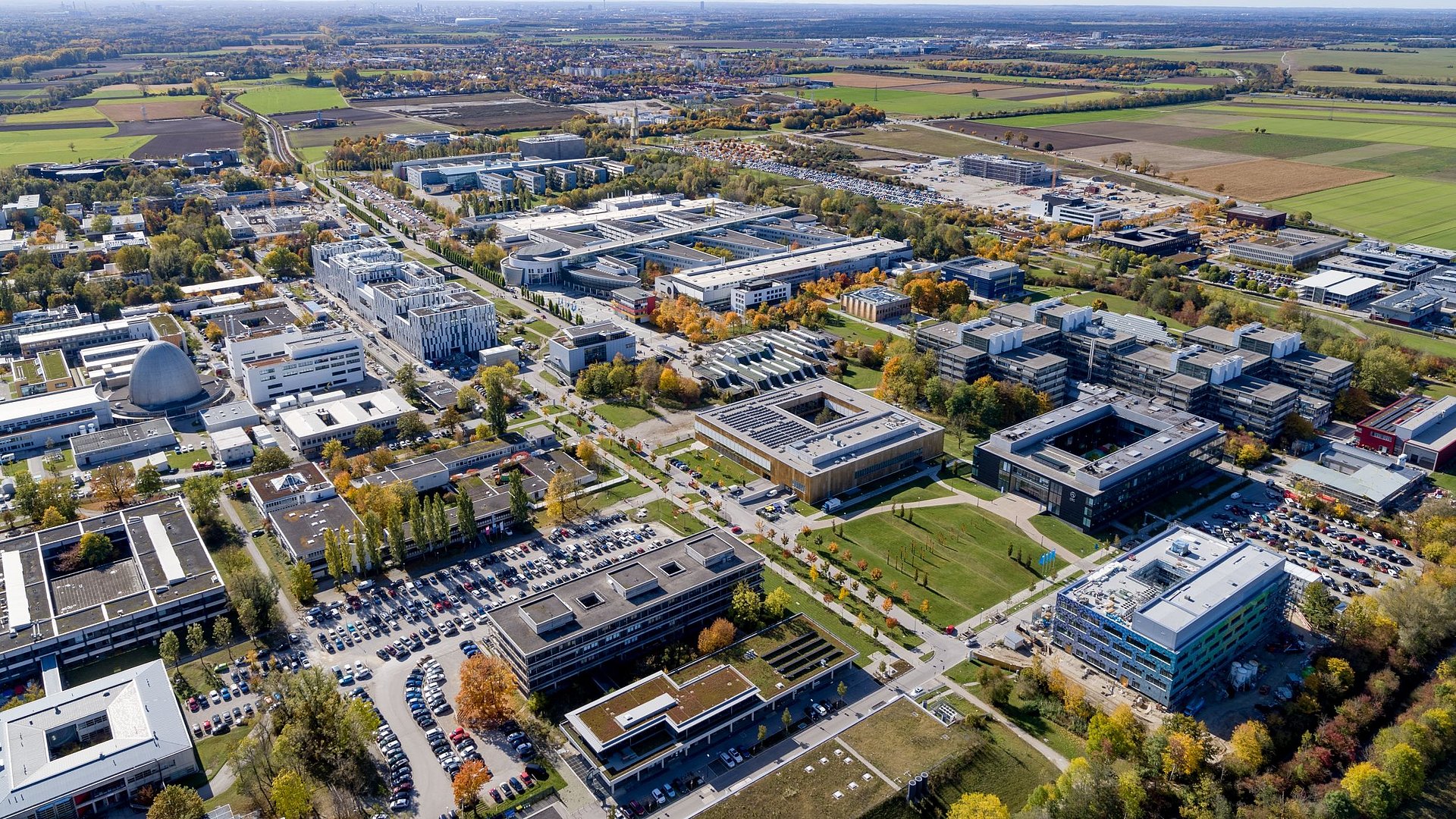Clusters of Excellence
Our academics combine their leading expertise in high-performance research alliances.
Since 2006, TUM has enjoyed success in every funding round for the Excellence Strategy of the federal and state governments, establishing research centers of international renown in Germany as an academic and science hub. Funding currently centers on four Clusters of Excellence which effectively combine the outstanding expertise of our university with that of further scientific institutions.
e-conversion: Fundamentals of energy conversion processes
The cluster „e-conversion“ is exploring the underlying processes in the conversion of renewable energies, e.g. in photovoltaics, photocatalysis and batteries. Researchers are working to reduce energy losses occurring at the interfaces between different materials as a result of physical effects. These are crucial for the efficiency of energy conversion.
Participating institutes: TUM, Ludwig-Maximilians-Universität München (LMU), Max Planck Institute (MPI) for Solid State Research, MPI for Chemical Energy Conversion, MPI für Kohlenforschung, Fritz Haber Institute of the Max Planck Society
Energy research at TUM
Our university brings together researchers from different disciplines in the field of energy research. They develop sustainable, cost-effective and practicable solutions for the future energy supply.
MCQST - Munich Center for Quantum Science and Technology
MCQST is examining the scientific basis for complex quantum systems and establishing the technological foundation of quantum technology, a key next-generation technology for the 21st century. The researchers address significant fields of application ranging from quantum computers, powerful quantum information systems and quantum sensors to novel quantum materials.
Participating institutes: TUM, Ludwig-Maximilians-Universität München (LMU), MPI of Quantum Optics, Walther-Meißner-Institute of the Bavarian Academy of Sciences and Humanities, Deutsches Museum Munich
Quantum at TUM
Quantum technologies will profoundly change our everyday lives in the coming decades. Our university is conducting cutting-edge research in this field and developing the underlying basic technologies. At the same time, we train highly qualified young scientists who will be able to accompany the change in the future.
ORIGINS: From the origin of the universe to the first building blocks of life
The cluster „ORIGINS“ is conducting research into the evolution of the universe from the Big Bang to the origin of life. Researchers from the fields of astrophysics, biophysics and particle physics collaborate, for example, in the search for the connection between the formation of planets and the origin of the first prebiotic molecules. Among other things, they are trying to show that life is a natural process that forms part of the evolution of the universe.
Participating institutes: TUM, Ludwig-Maximilians-Universität München (LMU), ESO – European Southern Observatory, Leibniz Supercomputing Centre of the Bavarian Academy of Sciences and Humanities, MPI for Astrophysics, MPI for Extraterrestrial Physics, MPI for Physics, MPI of Biochemistry, MPI for Plasma Physics, Deutsches Museum Munich
SyNergy - Munich Cluster for Systems Neurology
The cluster „SyNergy“ is studying how complex neurological diseases such as multiple sclerosis or Alzheimer’s originate. Using systems neurology as a new interdisciplinary approach, the researchers are able to map the many processes involved in neurodegenerative, neuroimmunological and neurovascular diseases. The cluster has been receiving funding since 2012.
Participating institutes: TUM, TUM University Hospital Rechts der Isar, Ludwig-Maximilians-Universität München (LMU), LMU Hospital, MPI of Neurobiology, German Centre for Neurodegenerative Diseases (DZNE), Helmholtz Munich, MPI of Biochemistry, MPI of Psychiatry
Successful start to the fourth round of the Excellence Strategy
TUM has already achieved its first success in the new round of the Excellence Strategy of the German federal and state governments: Three initiatives for new research clusters with its participation have been successful in the first evaluation phase and will submit a full proposal by August 22, 2024. Which clusters will ultimately receive the funding will be decided on May 22, 2025. The existing clusters will also apply for a further funding round with a new focus.
TUM as a University of Excellence
We are the only Technical University that has been consistently recognized as a University of Excellence since 2006. With this funding, we are implementing the TUM Agenda 2030 concept for the future from the Excellence Strategy, thereby accomplishing the most in-depth and far reaching modernization in the history of our university.
What is the Excellence Strategy?
With their Excellence Strategy, the federal and state governments have been supporting outstanding scientific achievements, research alliances and enhancing the profile of German universities since 2019. The funding program replaces and refines the Excellence Initiative established in 2006. It consists of two funding lines, the Clusters of Excellence in which universities and research institutes conduct joint research, and the Universities of Excellence whose preeminent position in research is to be extended.
The Excellence Strategy is conducted by the German Research Foundation (DFG) and the German Council of Science and Humanities (WR). Together they manage the selection and regular evaluation of the universities as well as research projects subsidized with this money.
Public Outreach
The podcast on dementia research: understandably explained
From Alzheimer's Disease to stroke: In this German-language podcast series, the Munich researchers of the Cluster of Excellence "SyNergy" (Munich Cluster for Systems Neurology) present the latest research findings and explain understandably how neurological disorders, in which nerve cells die off on a large scale, arise.
Podcast series of DFG on the research of the Clusters of Excellence (in German)





